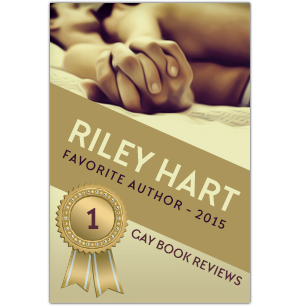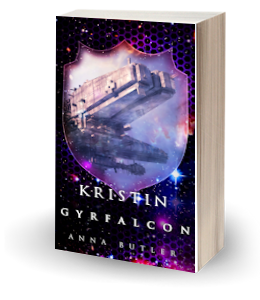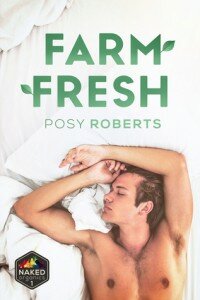 Title:
Title:
Author: K. Z. Snow
Cover Artist: Anne Cain
Publisher: Dreamspinner Press
Amazon:
Genre: Contemporary
Length: Novel/162 pages
Rating: 5+ stars out of 5
![]()
A Guest Review by Stuart
Review Summary: Xylophone is an amazing work of compassion and terror, delicacy and brutality, wonder and pain. If you can handle its subject matter, you will be well rewarded.
Blurb
Daren Boothe’s most significant secret centers on an unlikely object: a xylophone. That secret led him to develop his professional alter-ego, a sensual, androgynous dancer. When Dare begins his second (and considerably more wholesome) job playing clarinet in a polka band, he meets a young man who takes his grandmother out dancing. But Dare knows the man has his own secret.
Jonah Day immediately recognizes the clarinetist. Three years earlier they crossed paths in a therapist’s office, but they both abandoned that route to mental health. Neither was ready then to open up about the psychological traumas that haunted them.
In an attempt to heal their wounds, Dare and Jonah turn to each other. Understanding and empathy come instantly, accompanied by ambivalence about their growing attraction. But the repercussions of victimization are many. Soon, the very experiences Dare and Jonah share threaten to drive them apart.
Review
Making myself sit down and read Xylophone was incredibly difficult, the content of the novel a profound challenge. I don’t know about other survivors of childhood sexual abuse, but I avoid almost all fictional representations of the subject, whether in books or films. At one point, the story had me so upset I yelled at (my husband) Mike about something trivial and unrelated to the novel. I was maladaptively seeking exorcism of the memories of horror, shame, guilt, and self-loathing that the novel provoked in me. After I calmed down, we had another of the many necessary talks about past injuries. If stories about the trauma of childhood sexual abuse might trigger troubling reactions, think carefully before reading Xylophone.
I often thought about writing Wave and telling her I simply couldn’t finish the novel or write a review. I did not do this for two reasons:
1. I learned in therapy and my own recovery that I will try hard not let my injuries dictate my choices; and
2. K. Z. Snow was attempting something so audacious and beautiful in Xylophone that I wanted to finish the book, despite the clammy sweat, the fear, and the pounding heart.
In Xylophone, K. Z. Snow demonstrates her capacities as a writer of literary M/M fiction. I use the word literary, believing that for K. Z. how she tells the story is as important as the story itself. I am fascinated by her use of metaphor and simile. When successful, they are infused with a mysterious quality, bordering on the surreal, indirectly describing a transcendent dimension to life that cannot be directly expressed in words.
“One long, curved fingernail popped off and flew toward her lighted vanity mirror – a miniature sail caught by the wind and flung toward the sun.” In essence, a press-on nail snaps off and flies toward a mirror. But by identifying the fingernail and mirror with things of greater size and significance, a sail, the wind, the sun, the action is imbued with significance and possibility. Xylophone suggests that everything in life is something other and greater than it appears to be, sometimes for good and sometimes for evil.
This is a description of a polka party: At the edges of his vision, colors swirled. He fancied he stood before a tank in which polyester fish swam. “A floral-print blouse glided by, then a lime-colored knit shirt; a pair of striped suspenders, then a flamingo-pink jacket. Costume jewelry occasionally twinkled or sent out spears of light.” K. Z. captures the magical, sacred quality inherent in any artistic human endeavor grounded in the benign pursuits of community and pleasure. I am amazed at her ability to use words in unexpected ways in order to depict the numinous.
The author also consistently uses words usually reserved for living beings and applies them to the inanimate. The world of Xylophone is not one of inanimate objects subject to human dominion and choices. It is a world where metaphor suggests that objects have lives and feelings, whose intentions may or may not be benign. It is a world where “Only a thin layer of snow dusted the ground, glittering demurely in the frost-hazed sunshine.” The reader need not be afraid of this coy and decorous winter day. Yet it is also a world in which our main character Dare, “…eyed Bob’s new accordion. Arrogantly, it leered back at him, its mottled carapace gleaming, its scrolled grilles bracketing the keyboard like elaborate tribal scars.” The accordion is alive, proud, primal and insectile. The author turns a decorated accordion, which could be ridiculous, into something alluring and dangerous, full of unknown potentials.
K. Z.’s use of metaphor to imbue the mundane and ridiculous with danger prepares the reader to experience a xylophone as a medium for a child’s terror and psycho-sexual degradation. “Again Dare heard those xylophone notes, throaty and taunting, only pretending to be happy-go-lucky. At one time they’d hung from his bedroom ceiling, hung there for two years, slipping down invisible filaments when night fell, bloated balls with limbs but no features, spiders spinning and dropping.”
What an audacious and appropriate choice! Childhood sexual abuse is often like a xylophone, something absolutely mundane with hidden dimensions of unspeakable horror. Adults see the abuser (parent, sibling, teacher, clergyperson, neighbor, or relative) as one would see a xylophone, something completely unthreatening with the potential to enhance a child’s life. How does a child begin to find the words to remake adult perception? How does a child begin to tell an adult that the mundane xylophone is also a medium for torment, confusion, guilt, rage, and fear?
The main characters in Xylophone, Dare and Jonah, were shattered by their inability to cross this chasm of perception. Each was unable to speak about their sexual abuse and each developed extravagant and maladaptive defenses to channel their self-loathing and shame. By telling each other the story of their abuse, they find a way to begin to name and heal their injuries. As they tell their stories, they fall in love. What could be a more beautiful tribute to human resilience and the power of narratives to heal?
Unfortunately, Dare and Jonah’s dialogue about their shared history of abuse is consistently below the standard the author sets for herself in the rest of the novel. K. Z.’s writing style suddenly changes, becoming wooden and artificial. “Slowly, Jonah nodded. That’s the most insidious part – isn’t it? – how they burrow their way into us, make us dependent on their attention, make us think they’ve bonded with us in some unique way.” That sounds like expository dialogue more suited to a Very Special Episode than to her usual level of writing in Xylophone.
When the subject is not abuse, the characters speak in graceful and surprising prose:
“You look like a Christmas tree.”
“I beg your pardon?”
“Bright red cheeks, bright green eyes, glowing smile. A really… handsome Christmas tree.”
Such wonderful imagery and her signature use of an unexpected simile!
But when the subject is their traumatic histories, the unexpected use of language drains away, the metaphors and similes disappear, and these remarkable main characters start spouting dime-store self-analysis: “Being feminine meant setting yourself up to be ridiculed or victimized. Being masculine meant wanting to ridicule or victimize. But my stage persona, which came so naturally, somehow got me past all that. He brought me home to myself while keeping me out of danger.”
When the subject is abuse, even Dare’s internal monologue becomes something more appropriate to the texts I assign my graduate students: “Like any trauma, molestation experiences had certain core characteristics in common. And like any trauma, each experience was unique. The details of cause and effect were profoundly personal – and beyond the soothing touch of empathy or intimacy.”
Dare’s interior monologues are usually much more beautifully written: “That damp fog of self-blame and shame and secrecy had swallowed all his dreams. Dare suddenly remembered that his sixth grade teacher, Ms. Gunturu, had called a person’s collective aspirations a ‘hopescape’.”
Hopescape is an image that stays in the reader’s mind while certain core characteristics will soon be forgotten. Sometimes the author allows her narrative to flow and sometimes it becomes preachy exposition.
In the end, however, the extraordinary quality of her writing far, far outweighs its flaws. What she is attempting, and so often succeeds at achieving, is at such a high level that even mistakes cannot make this book anything less than a 5-star read. Xylophone is an amazing work of compassion and terror, delicacy and brutality, wonder and pain. If you think you can handle its subject matter, it’s more than worth the effort.















Thank you for this review, Stuart. I’ve had the book on my TBR for a while and, prompted by your rev, finally read it. as for me, you’ve hit everything spot on, its strengths and weaknesses. However what it comes down to in the end this was a moving and uplifting story that handled a difficult subject matter with respect and dignity. I’m in awe with KZ Snow’s writing.
Hi KZ,
Thanks for your words, reading them meant so much to Mike and me. Actually we don’t polka, we do something we call “the leprechaun dance.” While lacking the grace of the polka, it is still quite celebratory!
I have no doubt that Xylophone will give some voiceless person permission to take the first steps toward telling his/her story and finding an avenue toward healing.
Here’s to recovery from trauma for all of us.
-Stu
Stu
As you know I love to have fun with you and I can’t imagine you and Mike doing “the leprechaun dance.” Isn’t one supposed to be sylphlike to do this dance gracefully, if at all? :bravo: 😆
Do.not.hit.me or I will send the cops to your door. 😀
Stu, a very kind and considerate little birdie alerted me to this review. I debated with myself all day whether or not to respond, because I truly hate being one of those buttinski writers who gets all up in readers’ business.
But . . . I’m inexpressibly moved and humbled by your determination to push through this novella. That took courage. An appalling number of people have suffered the trauma of sexual molestation — a plague that afflicts males and females equally and, sad to say, GLBTQ youth in particular.
Far too many of us carry such a burden. I simply wanted to help put an end to the shame.
I’m just as moved, and grateful, that you gave my effort the benefit of the doubt. (Believe me, I’m well aware of its imperfections. And you nailed them, honey.)
So, thank you. Even if you’d eviscerated Xylophone, your voice would’ve carried authority, and I would’ve been flattered that you’d given this story a chance.
Now go polka with Mike and celebrate your love.
KZ
I loved this review for so many reasons, Stuart. I read it a few weeks ago and enjoyed it, though not to the extent you did. I didn’t, however, see the beauty of the language that you so deftly demonstrated in your analysis of it. It was such a great way to review a book, and I applaud you for taking the time to do it. And thank you for bravely sharing how you were affected by your personal experience, since it opened my eyes to how someone who has experienced sexual abuse in their past could, by reading this, start to work through it in some way.
I’m glad you found value in the review! I’m not a brave person, this is the first time I’ve shared my history in any public forum. I don’t know if I could have/would have if my full name were known. At that same time, if the statistics are true, 1 out of the 4 people reading this review have similar injuries in their pasts. It seemed important to review the book in the context of this ubiquitous trauma.
This is an awesome review, Stuart. I’ve been following your reviews (e.g, I felt the same way you did about Day of the Dead) to the point where I’m thinking we have similar taste, and I was hoping you’d like this book. I’m huge fan of KZ, and hope that I could someday be writing half as well as she does for all those reasons you mentioned.
I, too, loved the description of that accordion, which was worth the price of the book right there. 😀
Val, thanks so much for the kind words. Coming from the author of the excellent Fall Into The Sun, it’s very affirming. KZ does have a unique gift with language! It reminds me somewhat of Francesca Lia Block’s novel Baby Be-Bop. If we have similar tastes, you might want to read that as we wait for KZ’s next novel.
You’ve read Fall into the Sun? What a huge compliment! 😀 Thank you, Stuart, and thank you for the book recommendation. I think I read something by that author a long time ago, and meant to read more. I will seek this out.
It’s fate! I downloaded a sample of Fall Into The Sun ages ago. Looks like I don’t have to wonder any more. Looking forward to reading it.
Thank you, Mary G! It can’t compare to Xylophone and it’s a different type of book, but …wow, thank you! I hope you enjoy it.
No worries Val. I don’t compare authors. Each one I love has their own voice, style, etc. or I’d be reading the same thing over & over lol.
That’s a good way to look at it. 😀
Mary, by all means, read it! The characters are astonishingly vivid and realistic. Val has made Bobby and Alejo, and their families and friends and environment and conflicts, come alive.
Thank you for this review Stuart I bought this one almost right away buy also waited to get in the right mood to read it ( and I do not have personal triggers for this subject so I can imagine how much harder it probably was for you). I have read A hole in god’s pocket yesterday though and now I am craving more of her writing so I am going to get to this one very soon.
You’re welcome Sirius. Isn’t A Hole in G-d’s Pocket amazing!! I love KZ’s unique ability to create atmosphere. I hope she wins a Lambda Literary Award.
It truly was amazing. Thank you again
K Z is such a fresh and unique voice. She writes heartbreaking stories so beautifully. She has become an autobuy for me.
She’s great. I loved A Hole in G-d’s Pocket very much. Honestly, I’m hoping her next story isn’t “heartbreaking.” I’m looking forward to enjoying her writing without the pain.
I agree. A Hole in God’s Pocket was wonderful. And you’re right, they don’t all have to be heartbreaking.
I have been wowed by every word I’ve read written by KZ. I don’t feel the abuse was overt but the writing is so evocative that the trauma is very clear. I just shake my head in wonder when I read her stuff and marvel at way she phrases her work.
Stuart
Thank you for writing this exquisite review, despite the quite understandable and profound challenge you faced about the content of the book.
You illustrate in unusual poetic language for a field (i.e. reviewing) that’s mostly bare bones and pedantic, what readers will miss if we don’t have the courage to read Xylophone.
I have always loved K.Z’s books and this one obviously goes to the top of the list.
Thanks, Wave! KZ’s poetic sensibility evoked a poetic sensibility in me, I guess. Xylophone would actually be a great YA novel. The exposition I criticized in a book written for adults, might be very helpful for an 17 year-old struggling to find validation and vocabulary for their experiences. I don’t know how authors access the GLBT YA market but Xylophone might help a lot of guys contextualize the sexual violence in their past.
Stuart
We review many YA novels on this site and a new website has just been set up called True Colorz which is exclusively for YA authors and books. I profiled the site last week.
I will be collaborating with the authors who run the YA website about offering some of their books here. Many of the current GBLT epublishers have YA websites and a few others are setting them up as we speak.
This was the first book I read this year and also loved it.
I appreciated the author’s approach to the subject. She was not very detail oriented but covered the topic enough to make the book enjoyable despite the jarring topic.
I actually made the “mistake” to follow this book by reading another one that also dealt with child abuse (I must have missed the warning) and was able to appreciate even more K.Z. Snow’s approach on the subject.
KZ is an amazing writer. Her technical abilities and world-view make her writing unique among M/M authors. I hope she “breaks out” of genre confinement to find the wider audience she deserves and who deserve to read Xylophone